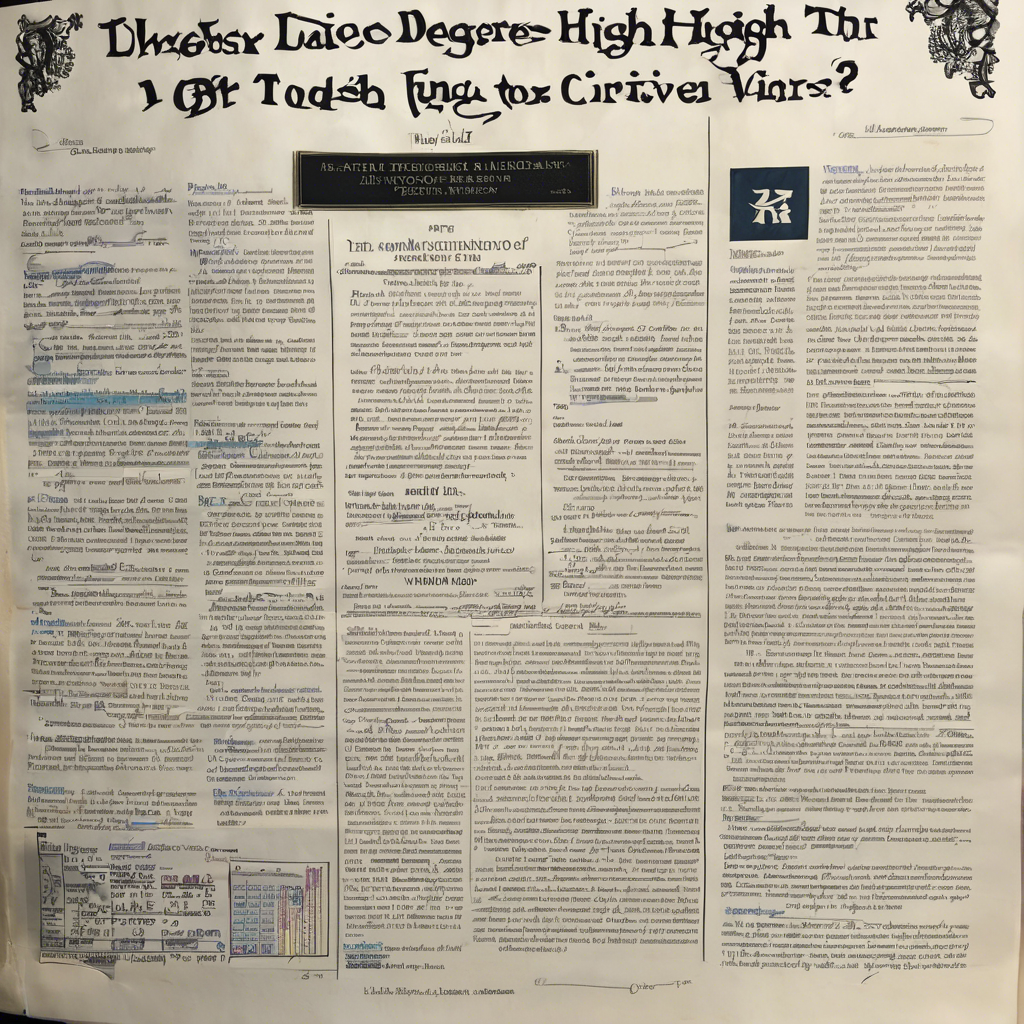In today’s fast-paced world, the pursuit of higher education has become increasingly important. While obtaining a degree can open up a world of opportunities, there is a growing debate about what degree is considered “too high.” Some argue that pursuing multiple advanced degrees may lead to diminishing returns, while others believe that continuous learning is essential for personal and professional growth. In this article, we will explore the concept of “too high” when it comes to degrees and consider the various factors that individuals should weigh before embarking on further academic pursuits.
One of the primary considerations when determining whether a degree is “too high” is the individual’s career goals and aspirations. For some professions, such as medicine or law, advanced degrees are necessary to practice in the field. However, in other fields, such as business or technology, the value of additional degrees may be less clear. It is essential for individuals to assess whether obtaining a higher degree aligns with their long-term career objectives, or if it is simply a pursuit of prestige without tangible benefits.
Another factor to consider is the financial investment required to obtain a higher degree. Advanced degrees often come with hefty price tags, including tuition, books, and other related expenses. Individuals must weigh the potential return on investment of obtaining another degree, considering factors such as increased earning potential, job market demand, and career advancement opportunities. It is crucial to conduct a cost-benefit analysis to determine if the financial commitment is justified by the potential benefits of obtaining a higher degree.
Furthermore, the time commitment involved in pursuing advanced degrees should not be overlooked. Higher degrees typically require several years of dedicated study and research, which can impact other aspects of an individual’s life, such as work, family, and personal pursuits. It is essential for individuals to consider whether they are willing and able to dedicate the necessary time and energy to successfully complete a higher degree program, taking into account their current responsibilities and commitments.
In addition to career goals, financial considerations, and time commitment, individuals should also evaluate the relevance and practicality of obtaining a higher degree in their chosen field. The job market is constantly evolving, with new technologies and industries emerging at a rapid pace. Individuals must assess whether a higher degree will provide them with the skills and knowledge needed to stay competitive in their field, or if alternative pathways, such as certifications or professional development courses, may be more beneficial in the long run.
Moreover, the impact of multiple degrees on one’s professional reputation and credibility should be taken into consideration. While advanced degrees can demonstrate a commitment to continuous learning and expertise in a particular area, having an excessive number of degrees may raise questions about the individual’s focus and specialization. It is essential for individuals to strike a balance between acquiring additional qualifications and maintaining a clear professional identity that resonates with employers and colleagues.
On a personal level, individuals should reflect on their motivations for pursuing higher degrees and consider whether these motivations align with their values and aspirations. Some individuals may be driven by a genuine thirst for knowledge and a passion for learning, while others may be seeking external validation or societal recognition. It is important for individuals to examine their reasons for pursuing additional degrees and ensure that they are in line with their personal and professional growth objectives.
Additionally, individuals should seek guidance and advice from mentors, career counselors, and industry professionals when contemplating pursuing a higher degree. These individuals can provide valuable insights and perspectives on the potential benefits and drawbacks of obtaining another degree, based on their own experiences and observations. Seeking feedback from trusted sources can help individuals make informed decisions about their academic and professional paths and avoid potential pitfalls or missteps.
In conclusion, the question of what degree is “too high” is a complex and multifaceted issue that varies depending on individual circumstances and goals. While advanced degrees can offer numerous benefits, including enhanced knowledge, skills, and opportunities, individuals must carefully consider the implications of pursuing additional degrees in terms of career objectives, financial investment, time commitment, relevance, reputation, personal motivations, and external guidance. By conducting a thorough assessment of these factors and aligning their academic pursuits with their long-term aspirations, individuals can make informed decisions about whether a higher degree is the right path for them.

